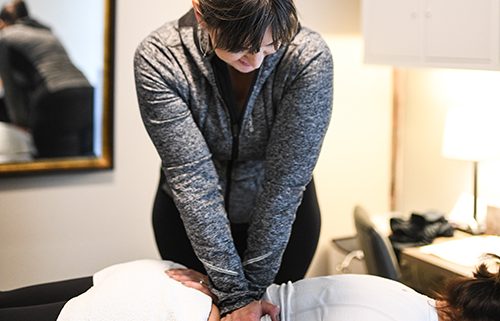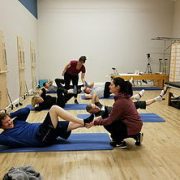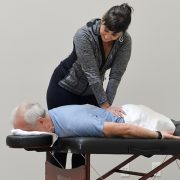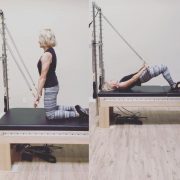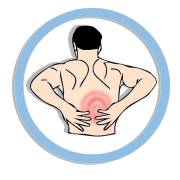How MRI’s Lead Back Pain Sufferers to Unnecessary Procedures
Have you ever had back pain and wondered…Do I need an MRI to figure it out? One popular questions I get from clients is if they need an MRI when experiencing back pain or sciatica. It’s pretty standard protocol when you go see a doctor – but is it necessary?
In most cases… NO.
About 70-80% of back problems, even sciatica, are considered mechanical in nature and quite normal. That means there isn’t anything “serious” causing your pain.
Serious causes of back pain include things like a tumor, infection, fracture, or severely compromised nerve. Your symptoms will be pretty specific and obvious to a back pain specialist – and will typically require advanced medical intervention. An MRI can be useful in these cases to get more clarity before medical intervention begins. But when your back pain is mechanical in nature, an MRI is more often than not misleading – and may lead to unnecessary procedures or surgery.
If you’ve had back pain for years, it comes and goes, or you’ve had relief in the past from things like physical therapy or chiropractic treatment…
You most likely have mechanical back pain.
The root cause of mechanical back pain can NOT be diagnosed by an MRI. If your back pain falls into the mechanical category, and you get an MRI anyway, you can end up with treatments you don’t need. Over the years, I’ve seen SO many people with mechanical back pain get major medical procedures that were irreversible and made them worse.
Here’s the problem….
MRI’s are an amazing technological advancement that will literally show you everything that is going on in your spine. Everything from bulging discs, arthritis, stenosis, and degenerative discs, which are all considered normal as we age, but are usually NOT the root cause of your back pain.
What typically happens is the MRI finds them, and your back pain gets blamed on them.
But what we know from research is that all those common MRI findings I just mentioned rarely correlate with what’s actually causing your back pain. Research has shown consistently that you can have two people with identical MRI’s showing something like bulging discs and arthritis, but only one of them will be suffering in pain.
That’s how we know the root cause of your back pain is coming from something else!
One notable study was the Lancet series. Three published papers that investigated how MRI findings related to the treatment of back pain. Martin Underwood, MD, co-author of the Lancet series, and professor at Warwick Medical School, is quoted in The Guardian. In fact, he says: “If you get into the business of treating disc degeneration because it has shown up on an MRI, the likelihood is that, in most of those people, it is not contributing to their back pain.”
Do you notice that certain positions or movements relieve your back pain? Or you feel better after walking and exercise? Your back pain is likely mechanical in nature. You don’t need an MRI to diagnose you.
Mechanical back pain responds to specialized movement therapy and a selectively progressed exercise protocol. Mechanical back pain does NOT respond well in the long run to injections, procedures, or surgery, which is what you can end up with if you get an MRI and don’t really need one.
I can’t tell you how many people I’ve seen over the years get surgery for a bulging or herniated disc. Only to find that it didn’t help their problem. Or it came back again with a vengeance. After all, once you have surgery mechanical back pain can actually become more difficult to fix. Your tissues and ligaments are now compromised from surgical scarring. No matter how minimally invasive they say your surgery will be.
If you’re confused, I don’t blame you.
CLICK HERE to speak with one of my specialists for free. They will figure out the right treatment plan for you. And at the very least give you some helpful tips moving forward.
Dr. Carrie Jose, Physical Therapist and Pilates expert, owns CJ Physical Therapy & Pilates in Portsmouth and writes for Seacoast Media Group. To request a free copy of her guide to back pain CLICK HERE or to get in touch, email her at [email protected].

